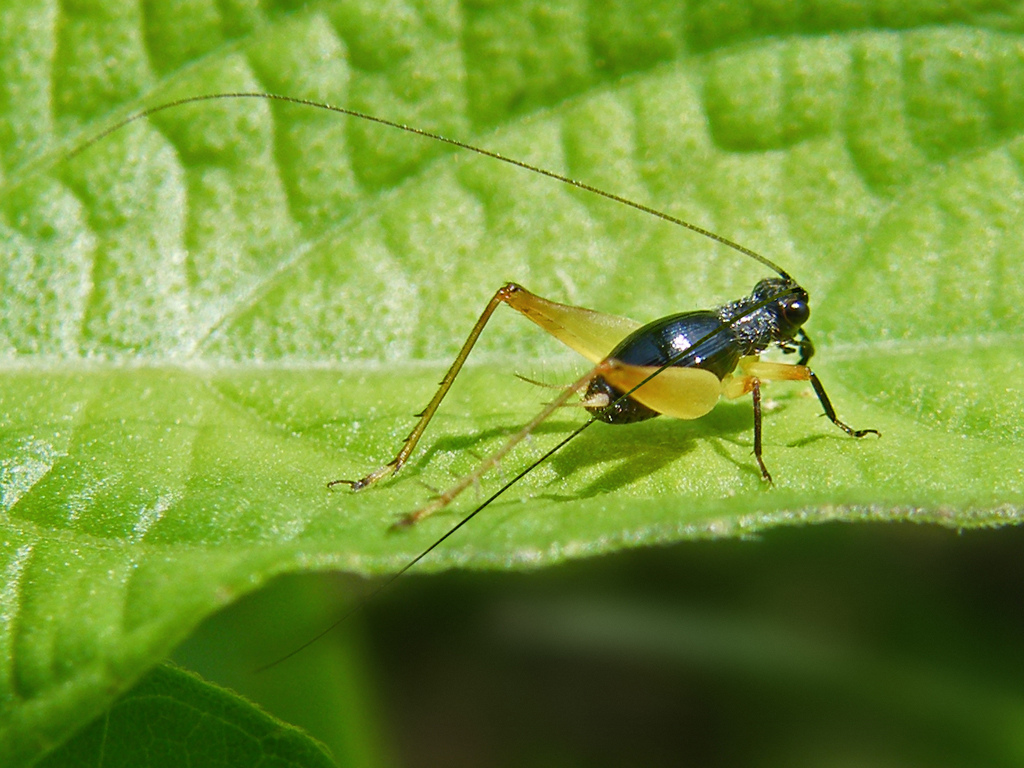
Are you a resident of New Orleans whose in need of lawn care service? Check out our New Orleans lawn services page for all of your lawn service needs.
All creatures need to eat. Sometimes they have a hankerin’ for the food in your yard. It could be your lawn or a flower garden or vegetable garden. You put a lot of time and effort into the landscaping that surrounds your home, and now something is making a mess hall of it. Here are five suspects, what they do and what you can do to get rid of them and keep them away.
Slugs and Snails
Photo: David Short
Slugs and snails are not the same species, but they have a lot in common: those squishy bodies, large antennae and the trail of slime they leave behind. Snails are the ones that carry their homes around on their backs.
They both come out at night to feed on your garden plants. You’ll know they’ve been at it when you see holes in the leaves and the silvery slime. Once they settle in, they’re really hard to get rid of, so get them out as soon as possible.
Leave saucers or bowls of cheap, flat beer in your garden overnight. Snails and slugs will smell it, climb into the container, become drunk and drown. If you can’t stand the thought of insects drinking your beer, use a mixture of grape juice, yeast and sugar.
You can also sprinkle crushed egg shells around the plants. The shells are sharp and hurt the soft bellies of snails and slugs, so they won’t climb over them to get to the plants. This is a “twofer” solution. The egg shells contain calcium and are great for the soil.
Crickets
Photo: Ian Jacobs
The body and wings of a cricket can be brown, gray or black, depending on the species. They have six legs; the two rear ones are hinged like a grasshopper’s. They cause great damage to flower and vegetable gardens, and they feed on the growth center of grass. When there are enough of them, they can severely damage the whole lawn.
Mix ½ cup of molasses with 5 cups of water and put the mixture into open glass jars. Place the jars around the yard where you are having cricket problems. The molasses attracts the crickets, they jump into the jar and drown.
The scents of garlic, clover and sweet peas irritate crickets for some reason. Plant any of those and the crickets will stay away.
Grasshoppers
Photo: Daniel Orth
Grasshoppers are one to four inches long with large, hinged hind legs and translucent wings, large eyes and prominent antennae. Grasshoppers are related to crickets and are also extremely aggressive. They can eat the whole lawn if you don’t get to them before they become adults.
You can buy praying mantises. They are gluttons and eat many different lawn and garden pests, even ones larger than themselves, such as grasshoppers. Praying mantises move slowly, but have lightning-quick reflexes. They lie in wait and then grab those unsuspecting grasshoppers.
The molasses mixture will also work. Or you can plant zinnias. They are a tastier treat to grasshoppers than grass is.
Moles
Photo: gordonramsaysubmissions
Moles have dark fur, a long muzzle, webbed feet and tiny eyes that get lost in that fur. The most common mole burrows through the ground close to the surface foraging for earthworms, grubs and other soil insects. They’ll also eat the roots of grass and plants, or damage them as work their way through the soil at one foot per minute.
Planting chocolate lilies or garlic keeps moles away. You can also trap them with a humane mole trap. Place the trap near the entrance to an active mole tunnel. The mole will find his way into the basket and not be able to get out. You can then relocate your prisoners.
Skunks
Photo: Paul H
They really are cute: velvety black fur, that cool white stripe and fluffy two-toned tail. They are mild-mannered—except when they feel threatened. And we all know when they feel threatened. Unaggressive as they may be, they will tear up a lawn and garden when they’re hungry. In some respects, they are good for plants. They eat the larvae of cutworms, Japanese beetles, and other destructive insects. Problem is they also eat leaves, buds and grasses.
Ironically enough, skunks are sensitive to certain odors. They don’t like the smell of citrus fruits, so you can place orange rinds or lemon peels around. They also don’t like strong-smelling soap or room deodorizers.










